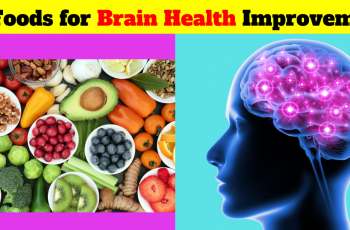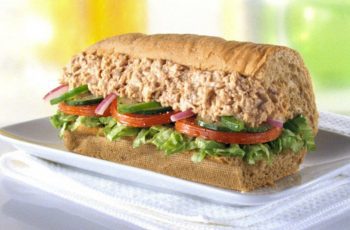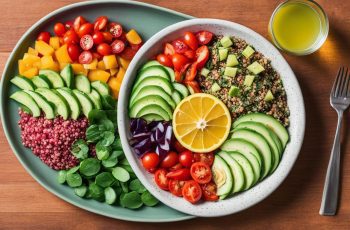When it comes to prostate health, maintaining a balanced and prostate-friendly diet is key. That is why, it is important to know the foods to avoid with enlarged prostate. For individuals with an enlarged prostate, also known as benign prostatic hyperplasia (BPH), certain foods can aggravate symptoms and hinder prostate wellness. To effectively manage the condition and reduce the risk of complications, it’s crucial to be aware of the foods to avoid with an enlarged prostate.
Enlarged prostate symptoms can include frequent urination, urinary urgency, weak urine flow, and difficulty emptying the bladder. By making dietary changes and avoiding foods that can worsen these symptoms, individuals with an enlarged prostate can experience relief and improve their overall quality of life.
Be Aware of Foods to Avoid with Enlarged Prostate
- A healthy diet plays a crucial role in managing the symptoms of an enlarged prostate.
- Some foods can aggravate prostate symptoms and should be avoided.
- Red meat, caffeine, alcohol, spicy foods, sodium, and processed meats can negatively affect prostate health.
- Incorporating prostate-friendly foods and adopting a healthy lifestyle can support prostate wellness.
- Prostate artery embolization is a minimally invasive procedure that can be considered for individuals who don’t respond to diet or medication.
Foods to Avoid with an Enlarged Prostate
When managing the symptoms of an enlarged prostate, it is important to pay attention to your diet. Certain foods can worsen the condition and aggravate urinary symptoms. By avoiding these foods, you can alleviate symptoms and support prostate health.
- Red meat: Red meat, such as beef and processed meats like sausages and hot dogs, can increase inflammation in the body and worsen symptoms of an enlarged prostate. It is best to limit or avoid these meats.
- Caffeine: Caffeinated beverages like coffee, tea, and energy drinks act as diuretics, increasing urine production and putting additional strain on the bladder. Cutting back on caffeine can help manage urinary symptoms.
- Alcohol: Alcohol is a bladder irritant that can worsen urinary symptoms and cause inflammation. It is advisable to limit or avoid alcohol consumption to support prostate health.
- Spicy foods: Spicy foods, such as hot peppers and strong spices, can irritate the bladder and worsen urinary symptoms. It is recommended to avoid or reduce the consumption of spicy foods.
- Sodium: High-sodium foods, including processed foods, fast food, and salty snacks, can contribute to water retention and worsen urinary symptoms. Lowering sodium intake is beneficial for prostate health.
By limiting or avoiding these foods, you can effectively manage the symptoms of an enlarged prostate and support prostate health. Making dietary changes is an important component of a comprehensive approach to managing the condition.
Prostate-Friendly Foods to Include in Your Diet
Incorporating prostate-friendly foods into your diet can have a positive impact on prostate health and help manage the symptoms of an enlarged prostate. By making smart choices and including certain foods in your daily meals, you can support prostate wellness and reduce inflammation.
Here are some prostate-friendly foods to consider:
- Salmon: Rich in omega-3 fatty acids, salmon is known for its anti-inflammatory properties, which can help reduce prostate size and promote prostate health.
- Tomatoes: Tomatoes contain lycopene, a powerful antioxidant that has been linked to a reduced risk of prostate cancer. Enjoy them in sauces, salads, or as a snack.
- Berries: Blueberries, strawberries, and raspberries are packed with antioxidants and vitamins that can benefit prostate health. Add them to smoothies, oatmeal, or enjoy them as a snack.
- Broccoli: This cruciferous vegetable is rich in nutrients like sulforaphane, which has been shown to have anti-cancer properties. Steam or stir-fry broccoli for a delicious and nutritious addition to your meals.
- Nuts: Almonds, walnuts, and Brazil nuts are excellent sources of healthy fats and antioxidants. Enjoy a handful of nuts as a snack or sprinkle them over salads and yogurt.
- Citrus Fruits: Oranges, grapefruits, and lemons are rich in vitamin C, which can help support prostate health. Enjoy them as fresh juices, add them to salads, or eat them as a refreshing snack.
By incorporating these prostate-friendly foods into your diet, you can take proactive steps in supporting your prostate health and overall wellness. Remember to consult with your healthcare provider for personalized dietary recommendations based on your specific needs.

Dietary Tips for Prostate Health
In addition to avoiding certain foods, making dietary changes can contribute to prostate health. Consuming a diet rich in fruits, vegetables, whole grains, healthy fats, and lean proteins can support overall prostate wellness.
Here are some tips for a prostate-friendly diet:
- Include a variety of fruits and vegetables in your meals. Opt for colorful options like berries, tomatoes, and leafy greens, as they are packed with antioxidants and nutrients that promote prostate health.
- Incorporate whole grains into your diet, such as brown rice, quinoa, and whole wheat bread. These fiber-rich foods can help regulate bowel movements and support digestive health.
- Choose healthy fats like those found in avocados, nuts, and olive oil. These fats can help reduce inflammation and provide essential nutrients for the prostate.
- Opt for lean sources of protein, such as fish (salmon, tuna) and skinless poultry. These proteins are low in saturated fat and can help maintain muscle mass.
- Stay hydrated by drinking plenty of water throughout the day. Adequate hydration is important for flushing out toxins and maintaining proper urinary function.
- Avoid excessive fluid intake before bedtime to reduce nocturia, which is the need to wake up frequently during the night to urinate.
Additionally, incorporating regular physical activity, managing stress, and maintaining a healthy weight are also important for prostate health. Engaging in exercises like brisk walking, jogging, or cycling can help improve blood circulation and support overall well-being.
Lifestyle Changes for Enlarged Prostate Management
Along with dietary changes, adopting certain lifestyle practices can effectively manage the symptoms of an enlarged prostate. Here are some strategies to improve urinary symptoms associated with an enlarged prostate:
- Manage stress: High stress levels can worsen prostate symptoms. Engage in relaxation techniques such as deep breathing exercises, meditation, or yoga to reduce stress.
- Quit smoking: Smoking can irritate the prostate and worsen symptoms. Quitting smoking not only benefits overall health but also supports prostate wellness.
- Avoid fluids in the evening: Limiting fluids, especially caffeine and alcohol, in the evening can minimize nighttime urination and improve sleep quality.
- Empty the bladder completely: Take your time when urinating and make sure to fully empty your bladder to reduce urinary urgency and frequency.
- Do pelvic floor exercises: Strengthening the pelvic floor muscles can help improve urinary control. Kegel exercises, which involve contracting and relaxing the pelvic floor muscles, are an effective way to strengthen these muscles.
- Try bladder training exercises: Bladder training techniques, such as gradually increasing the time between bathroom visits, can help improve urinary control and reduce urgency.
If lifestyle changes fail to alleviate symptoms, medication or surgery may be recommended. It’s important to consult with a healthcare professional for a personalized approach to managing an enlarged prostate.

Prostate Artery Embolization: A Minimally Invasive Treatment Option
When it comes to treating an enlarged prostate, there are various options available. One such option is prostate artery embolization (PAE), a minimally invasive procedure that has shown promising results for individuals who do not respond to diet or medication.
During the PAE procedure, tiny particles are injected into the arteries that supply the prostate. These particles block off the blood supply to the prostate, causing it to shrink in size. The procedure is performed under local anesthesia and image guidance, ensuring accuracy and precision.
PAE is considered a safe and effective alternative to traditional surgical treatments for enlarged prostate, such as transurethral resection of the prostate (TURP). Unlike surgery, PAE does not require a hospital stay or extensive recovery time. It can be performed on an outpatient basis, allowing individuals to return to their regular activities sooner.
Multiple studies have shown that PAE can provide significant relief from urinary symptoms caused by an enlarged prostate, without the potential side effects associated with surgery. It offers a minimally invasive solution for individuals seeking an effective treatment option that minimizes the risk of complications.
As with any medical procedure, it is important for individuals considering PAE to consult with their healthcare provider to determine if it is the right treatment option for them. A thorough evaluation of the patient’s medical history, symptoms, and overall health will help determine the suitability of PAE.
Prostate artery embolization provides a minimally invasive and effective approach to reducing the size of the prostate, offering relief from urinary symptoms associated with an enlarged prostate. It is a safe and viable treatment option for individuals who have not found success with dietary changes or medications.
Conclusion
Maintaining a prostate-friendly diet and making lifestyle changes are essential for managing the symptoms of an enlarged prostate and supporting overall prostate health. By avoiding foods that aggravate prostate symptoms, such as red meat, caffeine, alcohol, and spicy foods, individuals can significantly improve urinary symptoms and reduce inflammation.
Incorporating prostate-friendly foods into the diet is also crucial. Including nutrient-rich foods like salmon, tomatoes, berries, broccoli, nuts, and citrus fruits can support prostate health, reduce inflammation, and contribute to a healthy prostate. These dietary recommendations, combined with a healthy lifestyle, including regular exercise and stress management, can have a positive impact on prostate health.
In some cases, individuals may consider minimally invasive treatments like prostate artery embolization. This procedure, known as PAE, can effectively reduce the size of the prostate and is a safe alternative to traditional surgery, requiring no hospital stay or recovery time. However, it is important to consult with a healthcare professional to determine the most appropriate treatment option based on individual needs and condition.
By following dietary recommendations, adopting a healthy lifestyle, and seeking appropriate medical advice, individuals can effectively manage the symptoms of an enlarged prostate and promote optimal prostate health.
FAQ
What are the top foods to avoid with an enlarged prostate?
Some of the foods to avoid with an enlarged prostate include red meat, caffeine, alcohol, spicy foods, sodium, and processed meats. These foods can affect prostate health and increase inflammation, aggravating prostate symptoms. It is best to limit or avoid these foods to manage the symptoms of an enlarged prostate.
What are some prostate-friendly foods to include in my diet?
Prostate-friendly foods that can support prostate health include salmon, tomatoes, berries, broccoli, nuts, and citrus fruits. These foods are rich in nutrients that promote prostate health, reduce inflammation, and contribute to overall prostate wellness. Including these foods in your diet can help manage the symptoms of an enlarged prostate.
Which foods should I avoid if I have an enlarged prostate?
Foods to avoid with an enlarged prostate include red meat, caffeine, alcohol, spicy foods, sodium, and processed meats. These foods can worsen prostate symptoms and hinder prostate health. Limiting or avoiding these foods can help manage the symptoms of an enlarged prostate and promote prostate wellness.
What are some dietary tips for prostate health?
To support prostate health, it is recommended to consume a diet rich in fruits, vegetables, whole grains, healthy fats, and lean proteins. Staying hydrated, limiting fluid intake before bedtime to reduce nocturia, and avoiding foods that aggravate prostate symptoms are also essential. Maintaining a healthy weight, exercising regularly, and managing stress are additional dietary tips for prostate health.
What lifestyle changes can I make to manage an enlarged prostate?
Lifestyle changes that can help manage the symptoms of an enlarged prostate include managing stress, quitting smoking, avoiding fluids in the evening, emptying the bladder completely, doing pelvic floor exercises, and trying bladder training exercises. Limiting the intake of substances that worsen symptoms, such as caffeine and alcohol, is also important. If lifestyle changes are ineffective, medication or surgery may be recommended.
What is prostate artery embolization and how does it help with an enlarged prostate?
Prostate artery embolization (PAE) is a minimally invasive procedure that can effectively reduce the size of the prostate for individuals who do not respond to diet or medication. It involves injecting tiny particles into the arteries supplying the prostate, blocking off the blood supply and causing the prostate to shrink. PAE is a safe and effective alternative to traditional surgery, requiring no hospital stay or recovery time. It is performed on an outpatient basis.
How can I effectively manage the symptoms of an enlarged prostate?
To effectively manage the symptoms of an enlarged prostate, it is important to maintain a prostate-friendly diet by avoiding foods that aggravate prostate symptoms and incorporating prostate-friendly foods into your meals. Making dietary changes, adopting a healthy lifestyle, and considering minimally invasive treatments like prostate artery embolization can all contribute to managing an enlarged prostate and supporting overall prostate health.




